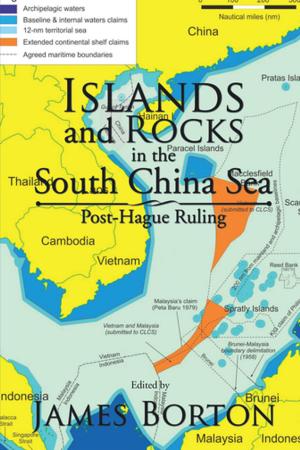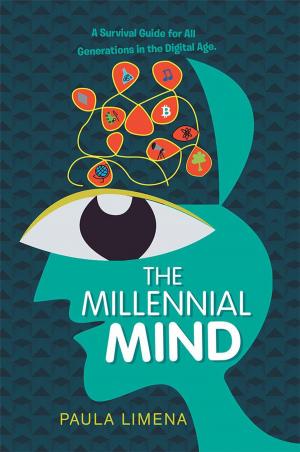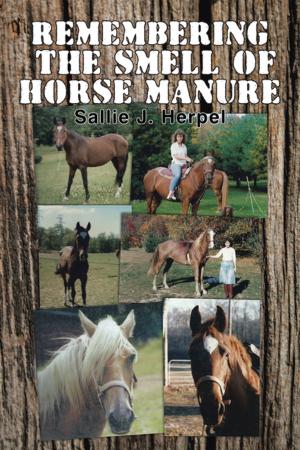From Kamptee to Dallas
One Information Professional's Journey Across Cultural Boundaries (India, Pakistan, Saudi Arabia, and United States)
Biography & Memoir| Author: | Zahiruddin Khurshid | ISBN: | 9781483637242 |
| Publisher: | Xlibris US | Publication: | June 28, 2013 |
| Imprint: | Xlibris US | Language: | English |
| Author: | Zahiruddin Khurshid |
| ISBN: | 9781483637242 |
| Publisher: | Xlibris US |
| Publication: | June 28, 2013 |
| Imprint: | Xlibris US |
| Language: | English |
Web Text Introduction There is a general perception about the authors of autobiographies that they tell truth about other people while they need to tell truth about themselves. I have tried to be objective throughout my book and highlighted my failures and mistakes too. The present book is an account of my life that began on February 8, 1947, when I was born in the Sarpanch Mohammad Khurshid Haq family in a small town on the banks of the river Kanhan known as Kamptee in India. Sarpanch is a title used for the head of Panchayat. The title remained in our family for three generations. After my father died, Anis bhaijan (elder brother) would have become the next sarpanch, but he had already migrated to Pakistan in 1947 and later we all left. I take great pride to be part of the Khurshid family, which has its roots in Kamptee but now known internationally through the contributions of several family members not only in library and information science but also in physics, business administration, computer engineering, medicine, and biology. During my sixty-six years of life, I migrated or relocated to four different countries and benefitted from their rich cultures. When I look back into the history, I find the following four distinct periods, each representing the years that I spent in one country before migration or relocation to another: 19471964, India 19641974, Pakistan 19742011, Saudi Arabia 2011present, United States The culture, social system, history, tradition, arts, language, literature, education system, and others will definitely influence anybody who has spent ten years or more in a country. Some may adopt a particular part of the local culture quickly, such as clothing, language, food, and so on. It is very common to see nurses from the Philippines learn Arabic in a few months and start talking to Saudi patients or visitors in Arabic with fluency because of the demand of their jobs. I feel sorry that I cannot speak Arabic as good as those Asian workers speak. However, their languages and scripts are completely different from Arabic. Now, one can understand that having lived in three countries for ten years or more, I have enriched my knowledge and skills, and enhanced other capabilities as information professional. I believe in the principle of give and take. I have benefitted from world knowledge all my life, now it is my turn to give something to the seekers of knowledge in return. Life is not about just take, take, and take; it is about both give and take. I find writing about myself as the most difficult job. During my professional career, I have worked with so many bosses, including deans, directors, and heads of departments. Before they left KFUPM or went back to their departments on the completion of their term, I requested recommendation letters from each one of them. Except my American bosses, all Saudi bosses asked me to first prepare a draft and show it to them so that they could make any changes, if needed. I had to be a little modest in preparing those drafts. I always felt that if the bosses had written those letters themselves, they would have used more superlatives for me. Therefore, I am already feeling a little uncomfortable writing my own biography. I will try to make this volume an objective and fair account of my personal and professional life. Family Roots in India Following the uprising of 1857, which the freedom fighters lost, the British forces started taking revenge against them and the local population civilians fearing for their lives started to move out. Among those who migrated in 1859 from Azam Garth and decided to settle down at Kamptee was the family of my pardada (great-grandfather) Mohammad Abdullah. He built ten mud houses and gave them free to the settlers until they found their own accommodation. Munshi Mohammed Saeed, my dada jan (grandfather), was born on April 30, 1875, in Kamptee. He is known more as a poet than for any other things. He used to publ
Web Text Introduction There is a general perception about the authors of autobiographies that they tell truth about other people while they need to tell truth about themselves. I have tried to be objective throughout my book and highlighted my failures and mistakes too. The present book is an account of my life that began on February 8, 1947, when I was born in the Sarpanch Mohammad Khurshid Haq family in a small town on the banks of the river Kanhan known as Kamptee in India. Sarpanch is a title used for the head of Panchayat. The title remained in our family for three generations. After my father died, Anis bhaijan (elder brother) would have become the next sarpanch, but he had already migrated to Pakistan in 1947 and later we all left. I take great pride to be part of the Khurshid family, which has its roots in Kamptee but now known internationally through the contributions of several family members not only in library and information science but also in physics, business administration, computer engineering, medicine, and biology. During my sixty-six years of life, I migrated or relocated to four different countries and benefitted from their rich cultures. When I look back into the history, I find the following four distinct periods, each representing the years that I spent in one country before migration or relocation to another: 19471964, India 19641974, Pakistan 19742011, Saudi Arabia 2011present, United States The culture, social system, history, tradition, arts, language, literature, education system, and others will definitely influence anybody who has spent ten years or more in a country. Some may adopt a particular part of the local culture quickly, such as clothing, language, food, and so on. It is very common to see nurses from the Philippines learn Arabic in a few months and start talking to Saudi patients or visitors in Arabic with fluency because of the demand of their jobs. I feel sorry that I cannot speak Arabic as good as those Asian workers speak. However, their languages and scripts are completely different from Arabic. Now, one can understand that having lived in three countries for ten years or more, I have enriched my knowledge and skills, and enhanced other capabilities as information professional. I believe in the principle of give and take. I have benefitted from world knowledge all my life, now it is my turn to give something to the seekers of knowledge in return. Life is not about just take, take, and take; it is about both give and take. I find writing about myself as the most difficult job. During my professional career, I have worked with so many bosses, including deans, directors, and heads of departments. Before they left KFUPM or went back to their departments on the completion of their term, I requested recommendation letters from each one of them. Except my American bosses, all Saudi bosses asked me to first prepare a draft and show it to them so that they could make any changes, if needed. I had to be a little modest in preparing those drafts. I always felt that if the bosses had written those letters themselves, they would have used more superlatives for me. Therefore, I am already feeling a little uncomfortable writing my own biography. I will try to make this volume an objective and fair account of my personal and professional life. Family Roots in India Following the uprising of 1857, which the freedom fighters lost, the British forces started taking revenge against them and the local population civilians fearing for their lives started to move out. Among those who migrated in 1859 from Azam Garth and decided to settle down at Kamptee was the family of my pardada (great-grandfather) Mohammad Abdullah. He built ten mud houses and gave them free to the settlers until they found their own accommodation. Munshi Mohammed Saeed, my dada jan (grandfather), was born on April 30, 1875, in Kamptee. He is known more as a poet than for any other things. He used to publ















